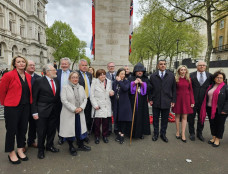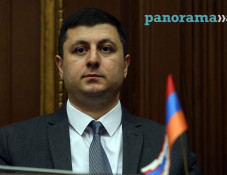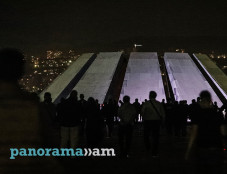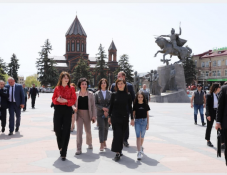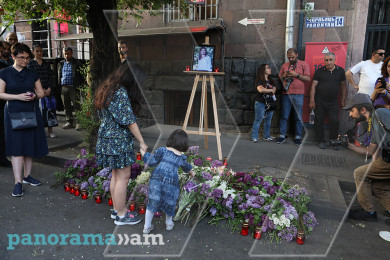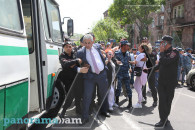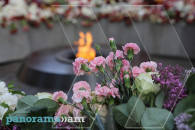Scientific publication of Russian Empire: Tatars in Zangezur uyezd looted, roamed and caviled Armenians
In the 34th issue for the year 1904 of the project “The Collection of Materials to Describe the Terrain and Tribes in the Caucasus,” the inspector of Hinzir two-year school, N. Shirakuni, published a study, dedicated to Zangezur uyezd. It covers the time the author lived and includes the nature in the uyezd, its agriculture, manners and life of the locals, education and the attitude towards education. The study also contains historical data and recounts the religious structures and ancient monuments there.
Situated in a valley between the Karabakh and Nakhijevan mountain ranges, Zangezur uyezd is almost furrowed by rugged landscape, with big and small rocky ridges stretching to various directions, sometimes parallel to each other and forming deep gorges between each other, which abound in natural openings and caves.
“Standing separately or piled on each other in fascinating groups, the protruding cone-shaped cliffs, resembling church cupolas, give a particularly original look to the country. Those cliffs are the silent witnesses of some bygone volcanic upheaval of prehistoric era,” this is how the author describes the beauty of Zangezur’s nature.
The locals, according to the author, had a kind of special religious respect towards those cliffs. Moreover, every cliff in the plain had its special name, and many folk legends were told about them.
“One of the legends is about a young man from the village of Hinzirak, who once wanted to break a cliff two versts to the north from the village for domestic needs. When he began to break it with a hammer, a voice from inside the cliff said reproaching, ‘he who dared to raise his hand against me will turn blind.’ After this incident, the young man lost his eyesight. From that time on, the inhabitants of Hinzirak put candles and torches around that cliff on holidays, and call it ‘Surb Kar’ (‘Holy Stone’),” the author writes.
People preserve various legends about the origin of the word “Zangezur.” According to one of these legends, it is a mutilated form of the Armenian phrase “ծակերի-ձոր” (“tsakeri dzor”, that is, “gorge of holes”) or “զանգ-զօրաւոր” (“zang zoravor”, that is, “powerful bell”). As a folk tale has it, there used to be a huge bell not far from the settlement Gerusi (Goris, ed.). Its toll could be heard from a few versts distance, that is why people started to call it “zang zoravor.” However, some people claim it derived from the word “ծաղկաձոր” (“tsakhadzor”, that is, “gorge of flowers”).
The inhabitants of Zangezur were engaged in cattle-breeding, gardening, horticulture, beekeeping and cottage industry, but their main occupation was arable farming. “Primarily, wheat is sowed here, and the wheat of the best quality, the red wheat, is produced in the villages Dig, Khinzirak, Geranzur,” the author notes.
The population of the area comprised Armenians and Shia Tatars. “The Tatars lead semi-nomadic lifestyle. Unlike the Armenians, they are not engaged in seasonal occupation, but like bad farmers, they farm only to cover their family needs,” the author describes the locals’ lifestyle.
He notes that the nomadic life developed the habit of permanent roaming in Tatar villagers and they could not stay in one place for long. The Tatars were also inclined to cavil, that is why their complaints usually were not attended. Not having residence and own husbandry, many of them were scattered about different villages in the uyezd. As a result, they often devoted themselves to looting.
Some Armenian villages, whose inhabitants’ occupation was farming exceptionally, kept significant number of horned cattle, and there was no enough forage for them inside the village. Consequently, the people had to move to summer camps with their cattle; few people were left in the village with their main occupation remaining looking after the arable lands. By taking the cattle away from the village during the period when the breadstuff grew, the villagers spared them from sudden “damages and spoiling.” It was good to feed the cattle in the mountain pastures in summer until they were needed for helping them harvest or process the crops.
The villages inhabited by the Armenians were situated in deep gorges with lots of natural and artificial caves. There was a “tonir,” a pit dug in the ground for making bread, built in one of the rooms of the house, and its walls were thickly covered with fire-resistant clay. There was also a hearth for making hot dishes in the same room. The Zangezur people’s main food constituted lavash, cheese, eggs, butter, milk, dry fruit and vegetables, rarely mutton and poultry, the author recounts.
Since 1894, the education embarked on a period of quick development: the number of open schools reached to forty. “Before the opening of the official schools, there were fairly a lot of Armenian parochial schools, but they were of narrow national character and pursued their national and religious aims,” the author points out.
He further highlights that the Tatars practically did not go to the official schools opened in the uyezd for them because the modern life was generally alien to them due to the influence of their clergy, and they avoided the Russian schools. “Even if they send their children to those schools, they do not see that they attend the classes regularly. The benefit their children could get from the information gained at school is of little interest to them,” the author writes.
The prevailing part of the Armenian population of the uyezd, on the contrary, understood the benefits and necessity of knowing the Russian language and realized that the school did not trample on their nationality and faith. Subsequently, their sympathy to the school grew. The school “weaned the children from gross and bad habits, foul language, mistreatment to animals and untidiness,” and gave them a vision of better conditions of life.
To be continued.
“The Collection of Materials to Describe the Terrain and Tribes in the Caucasus” is a large-scale publication of narrative sources carried out by the management of the Caucasus Educational Okrug in 1881-1908. It includes researches and description of the history, life, and ethnographic characteristics of the peoples inhabiting the Caucasus region of the Russian Empire.
Related:
Scientific publication of Russian Empire about destruction of Christian monuments in Barda by Tatars
19th century scientific edition of Russian Empire compiled historical data about ancient Erivan
C10th Arab geographer about customs of inhabitants of country of Khazars who did not look like Turks
Newsfeed
Videos








